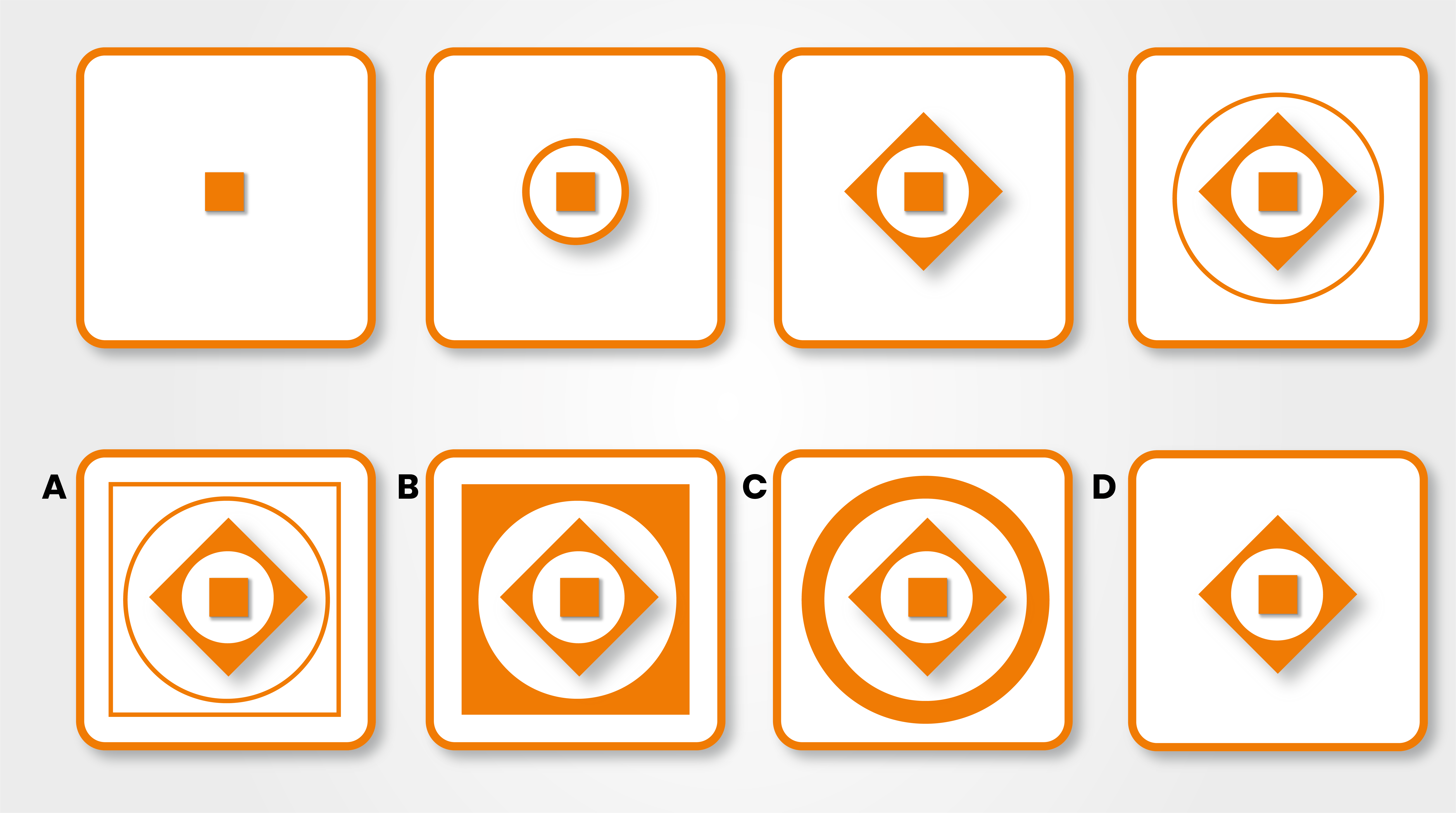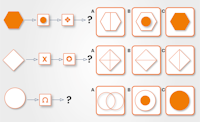Non-Verbal Reasoning (2025 Guide)
All products and services featured are independently selected by WikiJob. When you register or purchase through links on this page, we may earn a commission.
What Is a Non-Verbal Reasoning Test?
Non-verbal reasoning is an umbrella term that covers a wide range of psychometric ability tests such as:
The term is used to indicate that verbal competency is not necessary for, or assessed by, the test.
Because of this, the tests are seen as particularly effective for international assessment, as candidates speaking a wide range of languages are able to access the same test material.
Practice Non-Verbal Test with JobTestPrep
What Are Non-Verbal Reasoning Tests Used For?
Non-verbal reasoning tests are used extensively in selection and assessment processes. As they don’t rely on specific language skills, they are seen as a useful way of assessing candidates ‘raw ability’ rather than learned skills (i.e. language).
To successfully complete non-verbal reasoning tests, candidates must use logic, be able to recognize patterns in material and understand and assimilate novel information. Therefore these tests are often used by companies recruiting to positions where problem-solving or technical ability are important, such as engineering or project management.
They are also often used in leadership assessment processes (such as graduate scheme recruitment), as they assess candidates’ ability to respond to novel situations and are correlated with generalised intelligence.
So the better a candidate performs on a non-verbal reasoning test, the more likely they are to be able to logically and creatively solve novel problems in the workplace.

The theory goes that high performance in a non-verbal reasoning test should correlate with excellent problem-solving ability.
Non-Verbal Reasoning Practice Questions (2025)
There are a number of different types of test that fall within the category of non-verbal reasoning. To make it easier for you, all of the key question types are covered below. Should you need further practice, you can take more tests here.
Inductive/Logical/Abstract Reasoning Tests
Inductive reasoning tests (sometimes also called logical or abstract reasoning tests) assess a candidate’s ability to understand patterns, relationships between different elements and inconsistencies in data.
To successfully complete these tests, you need to be able to work out what the question is asking for, then find the solution. While every question is unique, there are a number of common themes in these tests and it can be useful to ensure that you are familiar with these.
Each question will be based around a number of rules, so you need to identify what these rules are to find the answer. Here are some examples of common rules:
Question 1: Things That Move Around
Which box completes the set?

If you need to prepare for a number of different employment tests and want to outsmart the competition, choose a Premium Membership from JobTestPrep.
You will get access to three PrepPacks of your choice, from a database that covers all the major test providers and employers and tailored profession packs.
Which box comes next in the sequence?

What box is next in the sequence?

Which of these boxes does not form part of this group?

Diagrammatic Reasoning Tests
Diagrammatic reasoning tests can be a bit different.
Instead of presenting purely abstract problems to the candidates, they can also require you to understand a flow chart (or similar diagram), work out the rules it uses, and then use these to solve the question.
For example:
Question 5: Flow Chart

The candidate must work out what rule each of the different elements contributes, and then use this to answer the questions below.

Here are the rules that the different elements contribute:

Which diagram is next in each sequence?
Spatial Awareness
Spatial awareness questions test your ability to understand shapes in different dimensions and configurations.
Questions often include reflection, rotation or images of flat shapes, which the candidate has to imagine in 3D.
Question 6: Spatial Awareness

Which of these shapes cannot be created using the individual shapes below?
If you want to take more non-verbal reasoning tests to improve your performance, click here.
Tips and Techniques for Non-Verbal Reasoning (2025)
To maximize your chances of being successful on non-verbal reasoning tests, it’s important to prepare properly. Some preparation activities that can be useful include:
-
Practice, practice, practice! While non-verbal reasoning tests are closely associated with generalized intelligence, you will always perform better if you are familiar with the types of questions you are likely to encounter and have some strategies for solving them. Many test providers, such as JobTestPrep, sell practice test packages, and it is worth completing as many of these as possible.
-
Problem-solving puzzles are a great way of honing your skills in this area and many people find them fun. Look for puzzle books or apps that contain a range of different puzzle types.
-
Familiarise yourself with a number of common rules (such as those explained above) so that you have a mental checklist of options to run through. This can help you find the answers more quickly, and stop you from panicking/going blank because you know you have some strategies to work with.
-
Focus on solving one rule at a time. Look at each of the different elements of a puzzle as well as the overall configuration, and try to work out what is happening and whether it’s important.
-
Manage your time well. Make sure you know how many questions you need to complete and how long you’ve got to do that in. You can then allocate yourself a time limit for each question. If you’re struggling with a question, move on and come back to it if you have time at the end.


















